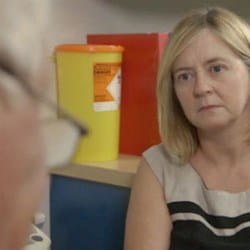 BACKGROUND
BACKGROUND
Dr L contacts MDDUS for advice on a patient requesting a DNACPR (Do Not Attempt Cardio-Pulmonary Resuscitation) order.
Mr J is 32 years old with a history of treatment for clinical depression and recent suicidal ideation, but no stated intention to end his life. He is in a steady job and has capacity to make his own decisions – and has no underlying condition that suggests he is near the end of his life.
Dr L feels uncomfortable actioning this request and enquires how best to proceed.
ANALYSIS/OUTCOME
An MDDUS adviser responds to Dr L via letter and advises caution in the case. Detailed discussion with the patient will be needed to help to resolve the matter at the earliest. She cites GMC guidance on Treatment and care towards the end of life, which provides specific advice on advance care planning, advanced refusal of treatment and DNACPR orders. The guidance demonstrates that DNACPR orders and advance decisions are quite distinctive documents used for different purposes.
A DNACPR order is completed by a doctor in circumstances where the patient has an existing condition that makes cardiac or respiratory arrest likely and is an expected part of the dying process. DNACPR should only be considered in circumstances where CPR would either not be successful or clinically inappropriate due to the likely outcome. The GMC guidance provides advice on deciding whether a DNACPR order is appropriate and what steps to take if there is disagreement with a patient or relevant others.
In England and Wales, any patient has the right to prepare an advanced refusal of treatment or advance decision. Such decisions are recognised as legally binding under the Mental Capacity Act 2005 (MCA), which allows a person (aged 18 plus and competent) to make an advance decision about future treatment and care if they go on to lose capacity to consent to or refuse that treatment. Individuals can only make advanced decisions to refuse treatment (rather than demand treatment) but cannot refuse in advance basic or essential care to keep them comfortable.
The MCA specifies very little formality regarding the format of an advance decision, apart from when the decision is related to life-sustaining treatment (these must be in writing and witnessed). All other decisions may be written or verbal, and a clinician should record verbal advance decisions in the patient’s medical records.
Dr L is advised to inform Mr J that, while a DNACPR may not be clinically appropriate, he may wish to consider obtaining legal advice or to consult an organisation such as Citizens Advice for further information and guidance on creating an advanced refusal of treatment or advance decision document. He may also wish to consider obtaining legal advice on other means by which he can bestow decision-making authority (such as a lasting Power of Attorney) upon a nominated individual.
The MDDUS adviser also reminds Dr L that the GMC advises that doctors are responsible for any documents they sign or write, and must be able to explain and justify their actions. A patient cannot demand that a doctor act in a manner which the doctor believes is not appropriate or clinically relevant. This is reiterated in paragraph 144 and 145 of the GMC guidance.
The MDDUS adviser reassures Dr L that it is unlikely she would be criticised for not providing a DNACPR in this case. However, Dr L is advised to invite Mr J for a discussion on the matter and to document this meeting in detail. She may also wish to discuss her concerns with colleagues, which the GMC suggests in unusual or complex cases.
It should be noted that the legal status of advance refusals of treatment in Scotland and Northern Ireland is less certain. These are potentially binding, but this has not yet been tested in the courts. Please contact MDDUS for further advice in relation to specific scenarios encountered.
KEY POINTS
- DNACPR orders are intended specifically for patients with an existing condition that makes cardiac or respiratory arrest likely and where it is considered that CPR would either not be successful or clinically appropriate.
- Patients do have the right to prepare an advanced refusal of treatment or advance decision setting out choices should they lose capacity.
- Advance decisions can be verbal and should be recorded in the patient notes.
- Patients cannot make demands which a doctor believes are not appropriate or clinically relevant.
This page was correct at the time of publication. Any guidance is intended as general guidance for members only. If you are a member and need specific advice relating to your own circumstances, please contact one of our advisers.
Read more from this issue of Insight Primary

Save this article
Save this article to a list of favourite articles which members can access in their account.
Save to library

